Mar
16
2010
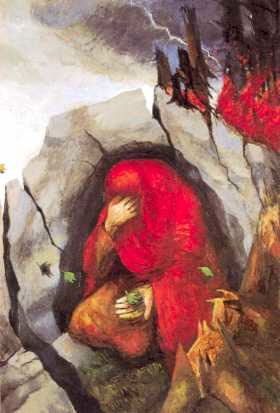
or Sinai Unspoken
On Mount Carmel, Elijah had built an altar of 12 rough-hewn stones. They substituted for the tribes of Israel. They were built and then consumed. The priests of Baal were slain and “washed” in the brook as atonement. The Land was clean. But we know Jezebel trampled this sacrifice underfoot. [1]
Elijah headed for the wilderness. He was a man with a mission. He went to the same cave in which Moses stood, a cleft in the rock. Once again, the Lord “passed over.” He was making a new Covenant, a new Creation, a new Heavens and a new Land.
Continue reading
Comments Off | tags: Azal, Cain, Elijah, Elisha, Ezekiel, Feasts, Hebrew, Jezebel, Tabernacle | posted in Biblical Theology, The Restoration Era
Jan
13
2010
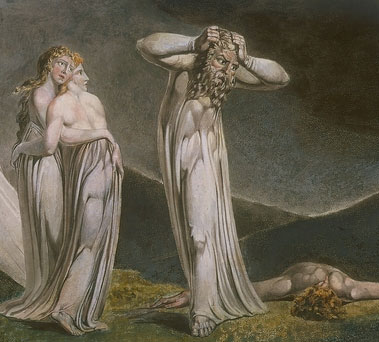
“Peter came to Him and said, ‘Lord, how often shall my brother sin against me, and I forgive him? Up to seven times?’ Jesus said to him, ‘I do not say to you, up to seven times, but up to seventy times seven.’” (Matthew 18:21-22)
Genesis 4 seems to contain two “feast” cycles. Near the end of the first, at “Atonement”, the Lord set a mark upon Cain to protect him from vengeance. As on the Day of Covering after Adam’s sin in Eden, the full weight of the law was withheld. Cain complained that his “liability” was greater than he could bear. Cain was covered but he still went from the presence of the Lord, as the goat which carried the sins into the wilderness. It seems Cain despised mercy.
Just as the Lord and the Land were two witnesses against his crime, he now fled from the face of the Lord and the face of the Land. Only the High Priest could face God, standing in the Veil, the firmament between heaven and earth. Abel was the true facebread, the authorised priest. [1]
Continue reading
6 comments | tags: Abel, Abraham, AD70, Atonement, Azal, Cain, Esau, Genesis, Herod, Jacob, Lamech, The flood | posted in Biblical Theology, The Last Days
Dec
7
2009
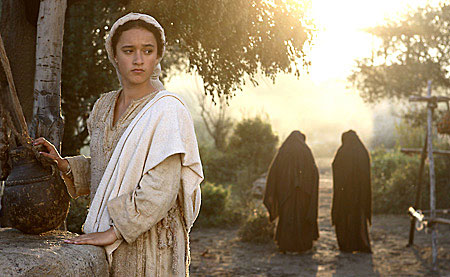
or Receiving the Implanted Word
Mary’s song, like most songs in the Bible, seemed to me to contain mostly extraneous material. My modern mind couldn’t relate her words to the version of Christianity I was familiar with. I guess that’s because it was a version bereft of much understanding of the Old Testament.
Mary’s song seems to follow the matrix pattern. As such, it is a new Creation, and a new Tabernacle, (John 1:14, “dwelt” is literally “tabernacled”). It is the liturgical response of the bride to the promise of Covenant succession – the Covenant succession. This new generation was also regeneration.
Continue reading
Comments Off | tags: Atonement, Azal, Bible Matrix, Christmas, Daniel, Dispensationalism, Feasts, Holy Place, Luke, Mary, Moses, Revelation | posted in Biblical Theology, The Last Days
Nov
24
2009
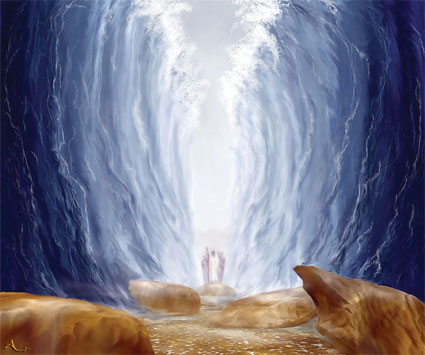
There was a discussion of purgatory on the BH list. Someone summarised it as follows: [1]
“Or, perhaps, with Peter Kreeft, one might interpret purgatorial cleansing as a form of heightened and perfected awareness, effected by the light of God’s presence as an illuminating and purifying fire. Thus, in death, in coming face-to-face with God, we finally see ourselves as we truly are, the depths of our own sin and brokenness, and all the consequences and ruin wrought by our own sin and unfaithfulness in our own lives, the lives of others, and the ongoing life of our family, church, and world.
Continue reading
Comments Off | tags: Atonement, Azal, Baptism, Communion, Crystal Sea, Laver, Purgatory, Roman Catholicism | posted in Biblical Theology, Quotes
Jun
30
2009
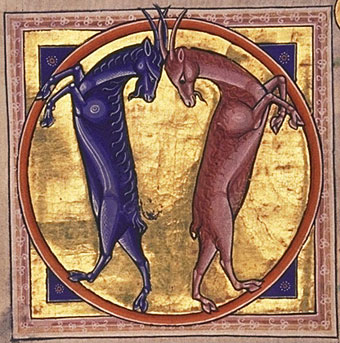 “And their dead bodies will lie in the street of the great city which spiritually is called Sodom and Egypt, where also our Lord was crucified.” – Revelation 11:8
“And their dead bodies will lie in the street of the great city which spiritually is called Sodom and Egypt, where also our Lord was crucified.” – Revelation 11:8
Revelation 20 makes it clear that the “second death” is the lake of fire. But an analysis of the literary structure of Revelation brings out an interesting factor.
Continue reading
Comments Off | tags: Against Hyperpreterism, Armageddon, Atonement, Azal, Egypt, Feasts, James Jordan, Passover, Peter Leithart, Revelation 20, Smyrna, Sodom, Systematic typology, Tabernacle | posted in Biblical Theology, The Last Days, Totus Christus
Apr
15
2009
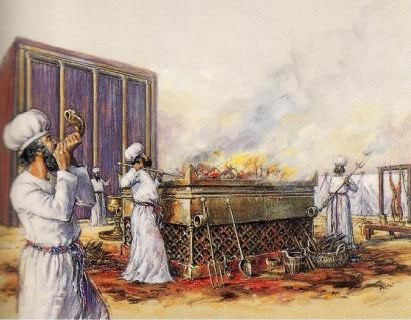
See to it that you do not refuse him who speaks. If they did not escape when they refused him who warned them on earth, how much less will we, if we turn away from him who warns us from heaven? At that time his voice shook the Land, but now he has promised, “Once more I will shake not only the Land but also the heavens.” The words “once more” indicate the removing of what can be shaken—that is, created things—so that what cannot be shaken may remain. Therefore, since we are receiving a kingdom that cannot be shaken, let us be thankful, and so worship God acceptably with reverence and awe, for our “God is a consuming fire.” Hebrews 12:25-29
The context of Hebrews is AD70. The destruction of Jerusalem meant that the saints had received the kingdom (Daniel 7).
Continue reading
Comments Off | tags: AD70, Altar, Atonement, Azal, Hebrews, Jericho, Passover, Tabernacle | posted in Biblical Theology, The Last Days































